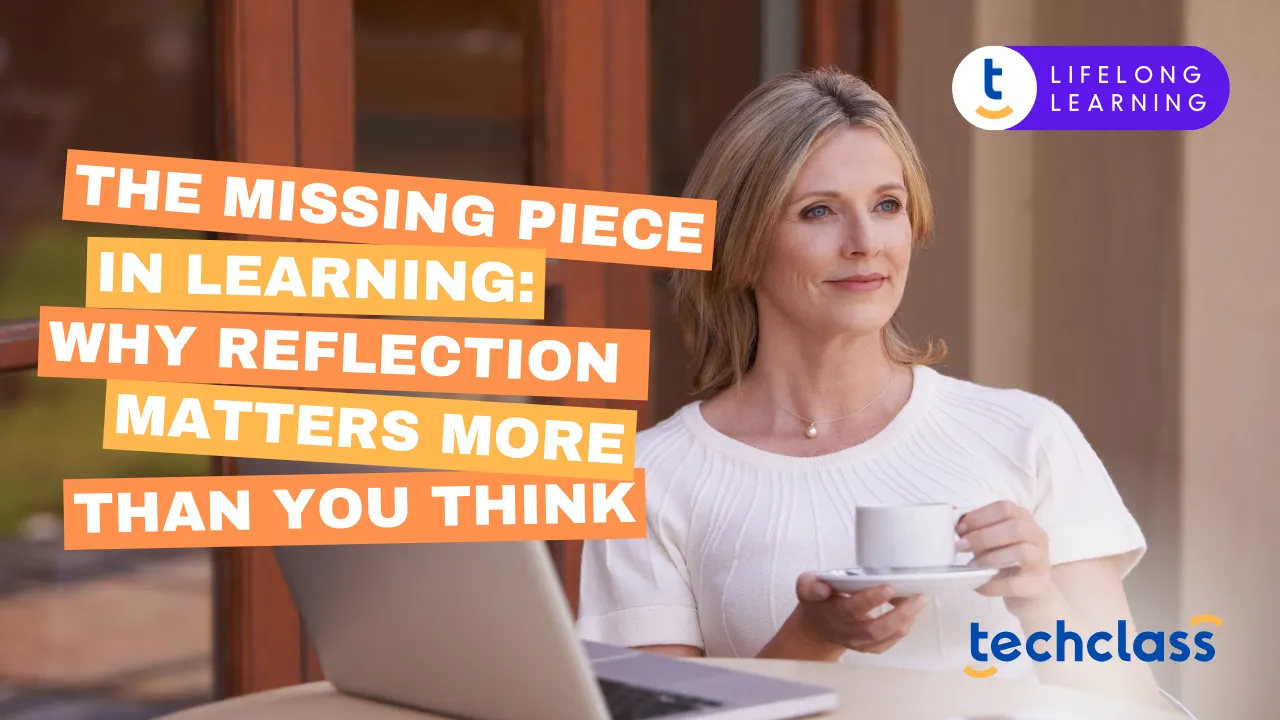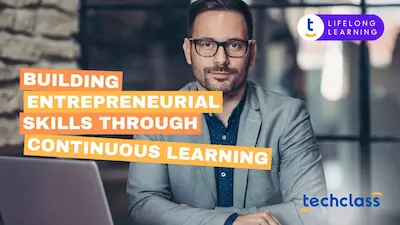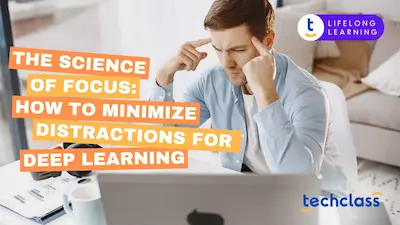
Surrounded by productivity hacks, efficiency tools, and constant stimulation, many people overlook a quiet yet crucial element in their learning journey: reflection. While most of us invest in learning new skills, attending webinars, reading books, watching tutorials, we often forget to pause and truly absorb what we’ve learned. We rush from one experience to the next, cramming our minds with content, but rarely give ourselves time to unpack it. That’s where reflection, the silent powerhouse of learning, gets lost.
Reflection isn’t a luxury or a soft skill, it’s a deliberate act of thinking about what you've learned, how it connects to what you already know, and how you might apply it moving forward. It’s self-examination with purpose. For learners navigating complex careers and life transitions, this isn't just helpful, it’s vital.
Unlike engagement, which is about doing, reflection is about making meaning from that doing. It turns experiences into lessons. Without it, learning remains superficial, fleeting, and disconnected from real change.
Reflection does more than just reinforce knowledge. It’s a tool for self-awareness, personal growth, and strategic thinking. When we reflect, we:
These aren’t just benefits for academic success, they’re core skills for anyone committed to lifelong growth.
So, if reflection is so powerful, why is it so often absent?
Today’s learning culture emphasizes activity, watch more videos, attend more workshops, read more articles. This drive to stay constantly engaged can feel productive, but without time to integrate what we've learned, we risk becoming content consumers, not knowledge builders.
Educational theorists argue that growth happens when we reflect on our experiences, not just when we have them. Yet, modern learning often tilts heavily toward engagement, leaving reflection behind.
Many people were raised in educational systems built around memorization and standardized tests. These systems rarely rewarded introspection or asked students to think critically about what they learned. As a result, most of us were never taught how to reflect, nor were we shown its value.
Even in professional learning settings, where hands-on and experiential training is common, reflection is still treated as optional, something extra rather than essential. But without reflection, experiences lose their power to teach.
Reflection isn’t daydreaming. It’s not zoning out on a commute or casually mulling something over. Reflection is active, structured thinking. It’s asking ourselves tough questions:
In this way, reflection is as intellectually demanding as learning itself. It requires mental effort, but also offers profound rewards.
When people intentionally incorporate reflection into their learning habits, they begin to experience deeper, more lasting growth. Here’s what that looks like:
This transformation, turning subjective experience into objective understanding, is the hallmark of lifelong learners.
Here are a few simple strategies for integrating reflection into your learning routine:
Lifelong learning isn’t just about staying current or getting certificates, it’s about evolving as a person. But that evolution doesn’t happen by accident. It happens when we slow down, think deeply, and integrate our experiences into who we are and who we’re becoming.
In a world overflowing with information, reflection is how we make meaning. It’s how we stop being overwhelmed and start being intentional. It’s not a nice-to-have, it’s the missing key. If you want to grow smarter, wiser, and more purposeful in your learning, don’t just do more. Reflect more.
Moving from passive content consumption to active reflection requires more than just good intentions; it requires a structured environment that encourages pause and analysis. While the strategies mentioned in this article are vital for personal growth, implementing them consistently across an entire organization can be difficult without the right digital infrastructure.
TechClass is designed to bridge this gap by transforming static training into a social, interactive experience. Through features like integrated discussion hubs and peer-review modules, TechClass provides employees with the space to narrate their learning journeys and share insights with colleagues in real-time. By automating reflection prompts within custom learning paths, the platform ensures that critical thinking becomes a consistent habit, helping your team turn everyday training into long-term professional wisdom.
.webp)

